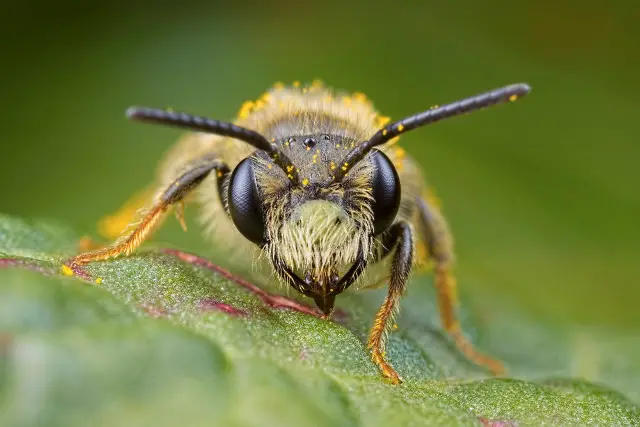Hannah shares this latest news on behalf of Hampshire and Isle of Wight Wildlife Trust. Ed
Making space for nature is the best bet for bees – Hampshire and Isle of Wight Wildlife Trust responds to new research showing many bees are on the brink of extinction.
On World Bee Day, a new report from WWF and Bug Life has revealed that many bee species risk extinction and some have already been lost.
17 species now extinct
Of 228 species examined, 17 species were shown to be extinct , 25 types were threatened and another 31 of concern.
Responding to this report, Debbie Tann, Chief Executive of Hampshire and Isle of Wight Wildlife Trust said:
“Bees should be considered man’s best friend. It is not an exaggeration to say that without them we are all lost. We depend on the services of these industrious insects for the food on our plates and the plants in our fields. Yet pollution, intensive agriculture, habitat loss and the climate crisis are all now making it difficult for these pollinators to survive.”
18 rare bee species on the Island
She went on to say,
“We are fortunate to be able to still see some of the rarest bees on our nature reserves. At Martin’s Wood, Newchurch for example, we have seen 18 different rare bee species, including several types of mining bee as well as an unusual yellow-faced bee and the cuckoo bee which, like its bird namesake, has a reputation for laying its eggs in the nests of other bees and using the pollen stores found there to feed their young.
“Whilst we are proud of being able to offer refuge to these fascinating insects, we know that nature reserves alone are not enough. We urgently need to increase the space for nature – making our homes, gardens, farms and wider countryside better for bees and people.
“Our vision for a wilder Wight calls on governments, landowners, developers, communities and individuals to all play a part in creating a wilder future – for all of our sakes.”
Image: © Chris Atkinson





